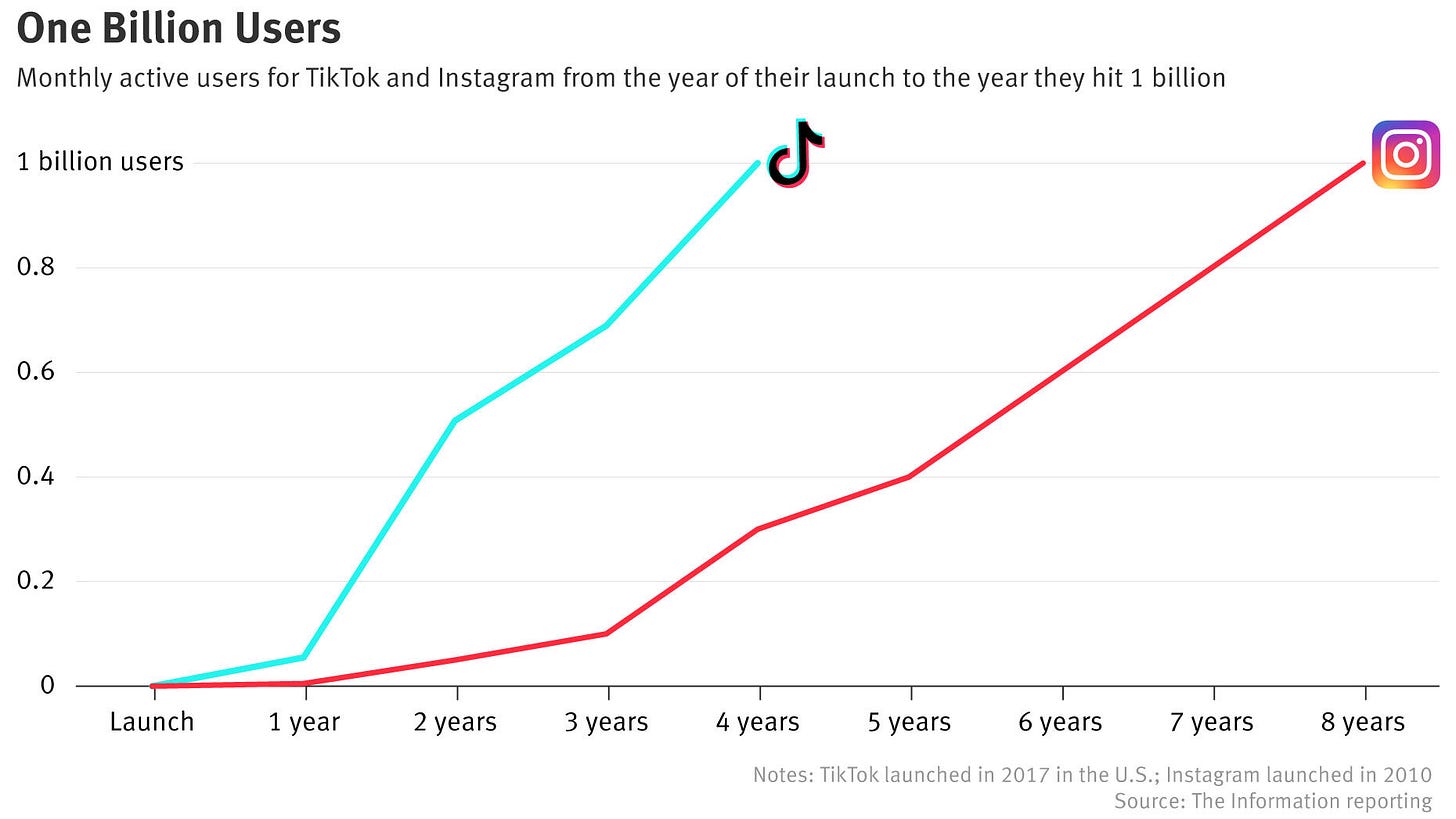Why We Can't Have Nice Things
Curiosity, TikTok, and Free Speech
Yesterday (March 23) we got to see a Chinese-owned company defend free speech while the U.S. Congress tried to shut down free speech. Welcome to the brave new world. And why we’ll never be able to have nice things.
If you didn’t watch the TikTok congressional hearing, you missed some really great moments. It wasn’t much of a hearing, but more of an opportunity for members of the U.S. Congress to 1) recite their talking points against TikTok and 2) display their complete ignorance of technology.
Not only do most of the people in congress not understand TikTok, they don’t understand technology in general. They don’t understand how Wi-Fi works, how phones work, or how GPS works. I’d guess that most of them don’t even know how to do basic things like email or log in to a computer. And yet they want to legislate rules for the rest of us about technologies we use.
If you’re not a current TikTok user, or have only heard some of the “scary” things about the app, then you may not understand the problem. I’m not a long-time user, so when the discussion about a ban first came around, I thought “well, if it’s a security risk, then I guess that’s fine.”
But it only takes a minute to understand that argument is a smokescreen. The reality is that companies like Meta (Facebook) and Google can’t compete with TikTok, so they’ve been relentlessly putting out propaganda against it as well as lobbying congress to ban it from the US.
It makes sense. If a competitor is eating your lunch, get the government to shut it down. All the better if that company is owned by a company in a country that your government doesn’t like.
 Tiktok failed to load.
Tiktok failed to load.Enable 3rd party cookies or use another browser
If this was about data and privacy, then the conversation would be and should be much broader. Believe me, that is definitely something we should address and our government should address. Your data, my data, all our data is bought, sold, and used by everyone everywhere. It’s not a TikTok problem. It’s a modern world problem. And we should do much better about rules and regulations for privacy and security.
Unfortunately, that’s not what this is about. It’s about a government (the U.S. government in this case) that wants to control information or be able to control the companies who control information. They obviously don’t feel like they can effectively do that with TikTok. And it’s also (like always) about money. Who can contribute to re-election campaigns? Who is paying the most for votes right now? It’s obviously companies like Meta or other vested interests.
This is the case with every organization ever. Governments don’t want platforms for the exchange of ideas, despite what they say. That’s why so many governments limit gatherings, shut down or limit social media, and control traditional media. It’s why corporations make rules to tell you that you can’t talk about salary or certain policies at work. It’s why religions try to ostracize former members and limit sources of information.
No one in power wants people talking, because that is a threat to power.
It really comes down to free speech. TikTok is an incredible platform for anyone to reach an audience, find their voice, and join a community. There isn’t anything else like it.
I was certainly skeptical as well. But like any curious person, I jumped into TikTok and explored it. I don’t think there has been a place where I have learned more or been exposed to more interesting ideas in such a short time. It has been incredible.
Obviously, not everything is great. Social media, in general, is a problem. The internet is a problem. Privacy is a problem. But we need to address those things systemically and continue to push companies to do better.
Banning apps out of fear or lack of understanding is dystopian-level sci-fi. I like to think we’re better than that, but I’m not so sure. Which is why we probably can’t have nice things…







The confusion of TikTok for the voight kampff test is the funniest. I agree with you that it’s clearly about wanting the technology because they can’t compete. But I am fungible if anyone does come up with a reasonable argument for security.